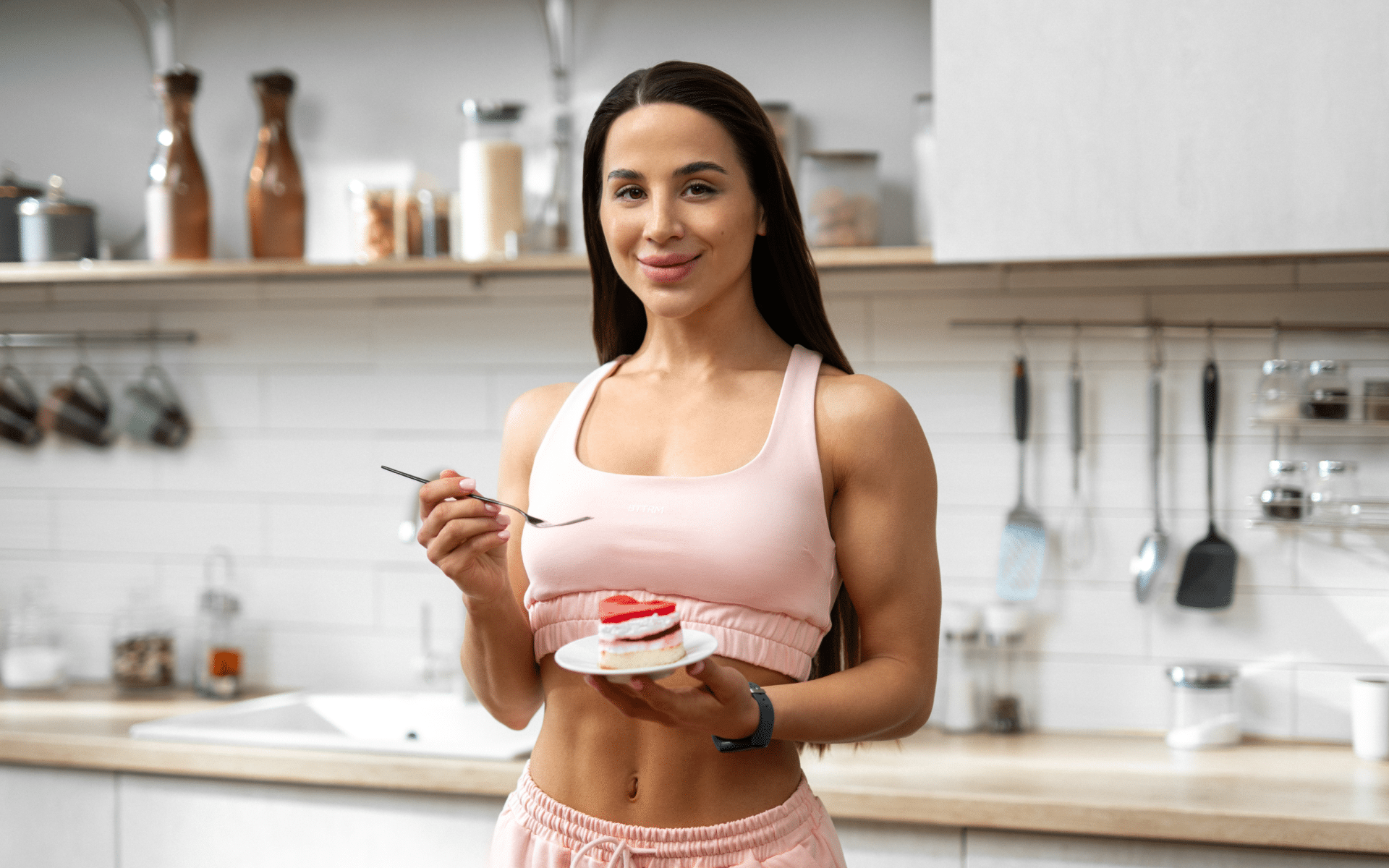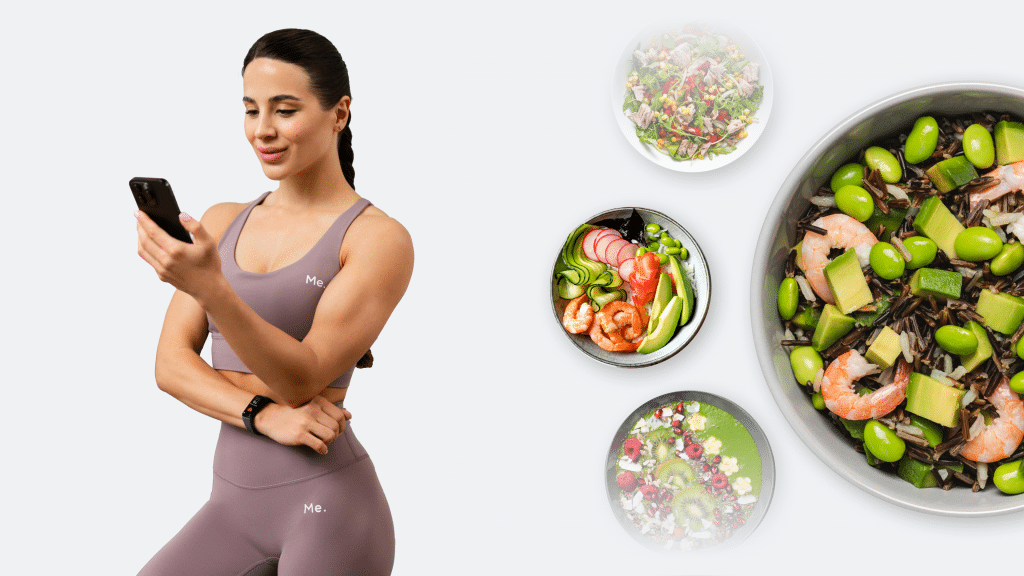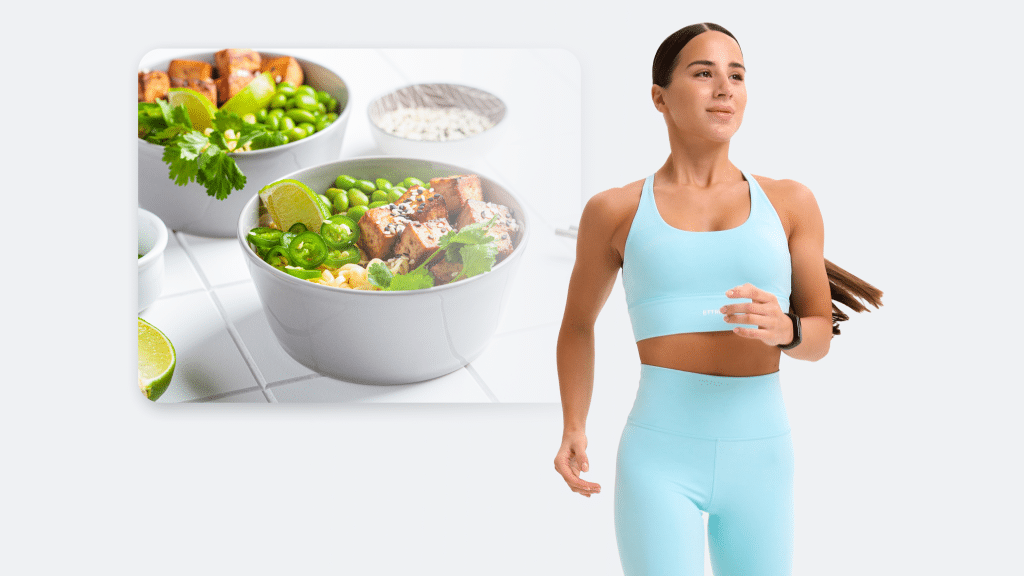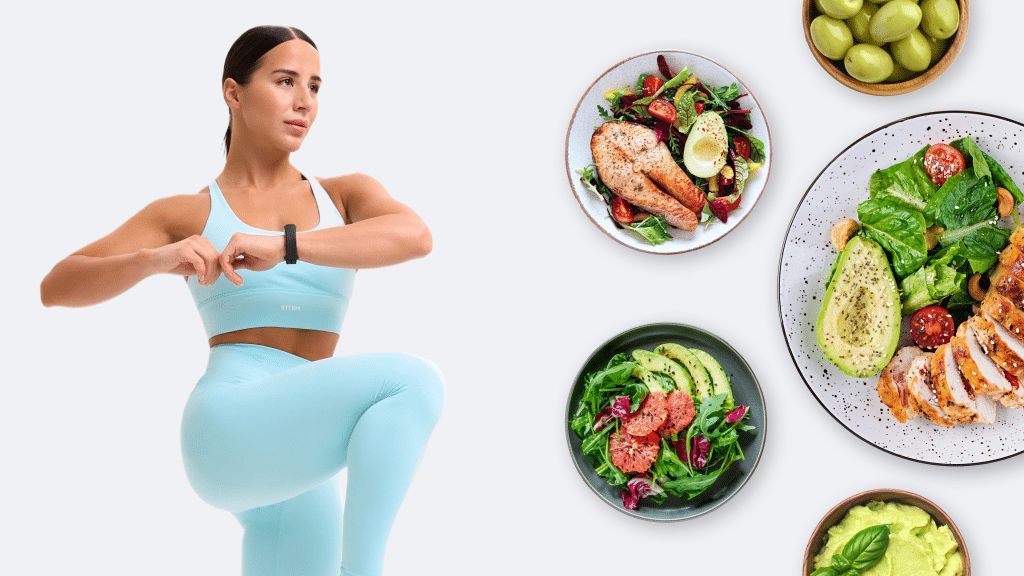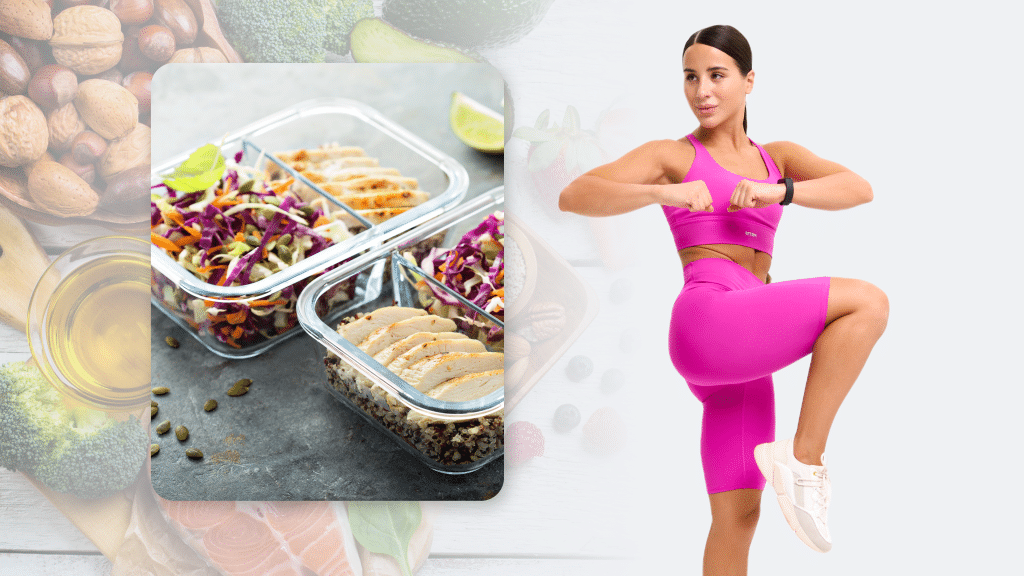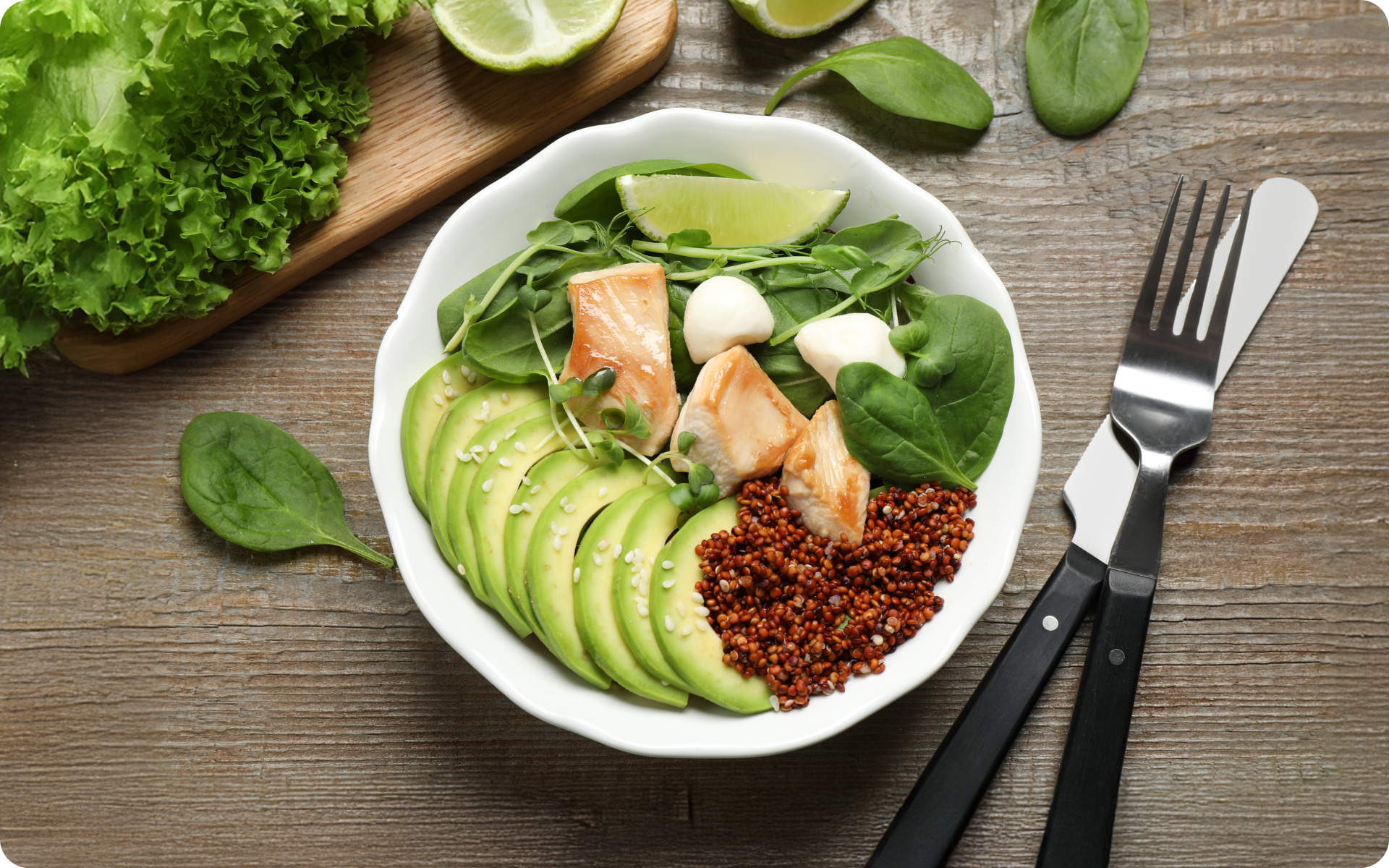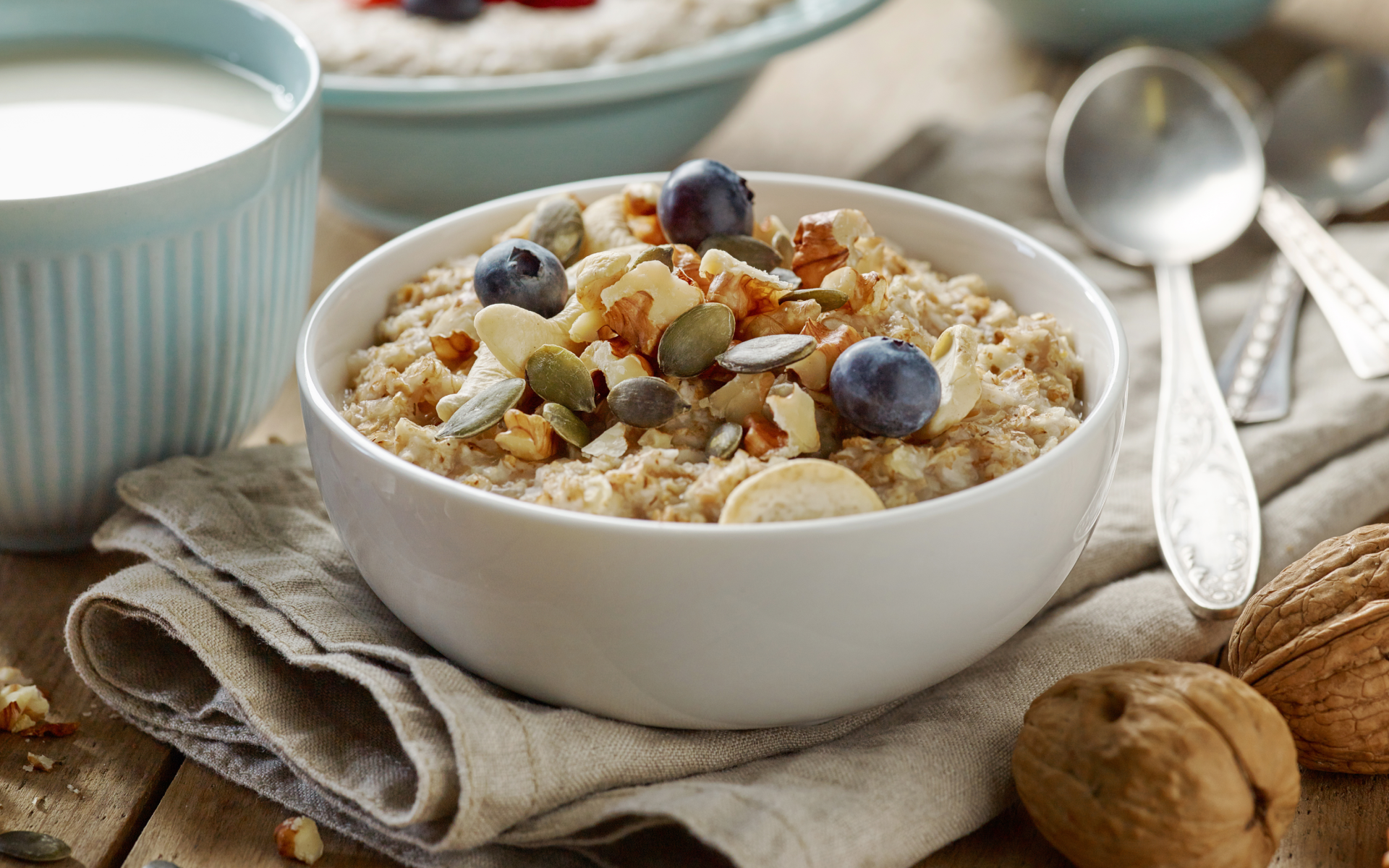Some of us believe that eating 5 or 6 small meals a day is a great way to elevate metabolism and lose weight. However, a lot of people go about it the wrong way and end up packing on more pounds instead. This leaves us questioning how the concept of eating 6 meals a day really works. Does it boost fat loss or does it help with weight gain? Well, let us find out!
Have you thought of giving the 6 meals a day diet plan a try but are unsure of the outcome? Well, if it helps, know that you’re not alone. When it comes to a 6 meals a day plan, there are a lot of unanswered questions. The primary one is the impact of consuming such meals on the number on the scale. How do you adjust this meal plan to hit either your weight loss or weight gain goals?
In this read, we’ll look at eating six meals a day to either lose or gain weight. Let’s dive right in!
What Is a 6 Meals a Day Plan?
A 6 meals a day plan involves consuming six meals every day. Some people choose to have these meals any time of the day, as long as they hit the six-meal mark. Others spread them out throughout the day in a regular pattern. It is divided as follows: breakfast, a mid-morning snack, lunch, mid-afternoon snack, dinner, and a late-night snack.
Regardless of your goals or preferences, the most important aspect of this meal plan is eating healthily.
Healthy Diet Criteria
The Centers for Disease Control and Prevention (CDC) defines a healthy diet as one that meets the following criteria (4):
- Stays within your calorie needs
- Emphasizes the consumption of fruits, vegetables, low-fat or fat-free milk products, and whole grains
- Has low traces of trans fats and limited saturated fats, sodium, added sugars, and cholesterol
- Includes a variety of protein food sources, including lean meats, seafood, nuts, seeds, soy products, and legumes
Eating six mini-meals may also come with certain benefits. Some suggest that such an eating plan may help stabilize your blood sugar levels and improve your appetite control. However, portion control is more important than meal frequency or timing if weight loss is your goal.
If you wish to free yourself from all the extra pounds that have been weighing you down for way too long, start using the BetterMe: Health Coaching app and overhaul your entire life!
How to Fit in 6 Meals a Day
Fitting six meals into a single day requires a certain amount of pre-planning. To do it successfully, it’s recommended that you divide the day into intervals of 2-3 hours. The meals you’re consuming in these gaps should also be well proportioned, i.e. include a good balance of protein, healthy fats, and complex carbohydrates. Some tips to fit in six meals a day include:
- Plan ahead: Prepare meals in advance to ensure you have time to eat regularly.
- Time management: Eat within set time blocks, such as 7 am, 10 am, 1 pm, 4 pm, 7 pm, and 9 pm.
- Focus on nutrient-dense foods: Choose foods that are high in nutrients but moderate in calories to avoid overeating.
- Smaller portions: As you’re eating more often, keep the portions small to avoid feeling too full.
- Portable options: Keep easy-to-carry snacks such as nuts, yogurt, or fruit with you.
This approach helps maintain stable energy levels and supports metabolism throughout the day.
Read more: Small Frequent Meals: Benefits, Drawbacks, And Sample Meal Plan
Can You Eat 6 Small Meals a Day for Weight Loss?
Yes, you can. Harvard University acknowledges that you can eat frequently and still lose pounds (3).
However, you must remember the weight loss specifics. They detail that you need to consume fewer calories than your body burns if you want to shed pounds. To lose one pound of body fat (3,500 calories) in a week, you’ll need a deficit of approximately 500 calories daily (7). So you must consider creating a calorie deficit if you want these six small meals to work in your favor for weight loss.
How to Eat 6 Small Meals a Day for Weight Loss
It should be noted that there are specific aspects you must take into account if you’re using this meal plan for weight loss. They are as follows:
-
Calorie Intake
As mentioned above, you must create and maintain a calorie deficit if you want to shed pounds. This is important regardless of your meal timing or frequency.
-
Skipping Meals
You shouldn’t skip any meal if you’re using this meal plan for weight loss. Skipping meals may increase your craving for unhealthy snacks, which can increase your calorie intake (2).
-
Portion Size
You need to take control of the amount of food you consume as it contains calories. Remember that your goal is to maintain a calorie deficit to prompt weight loss.
Similarly, you must also pay attention to the foods you add to this diet plan. As your goal is to shed pounds, you should include more foods that are rich in nutrients but low in calories. In most circumstances, healthcare providers recommend the following foods:
-
Non-Starchy Vegetables
Most of these vegetables have low calories and a high fiber content. Fiber is essential for weight loss as it increases satiety levels and minimizes overeating. Such vegetables include broccoli, cabbage, Brussels sprouts, cauliflower, peppers, mushrooms, and leafy greens (13).
-
Lean Proteins
These protein food sources help tame your hunger, which could help you shed pounds (5). Protein also helps build muscle, which burns more calories at rest than adipose (fat) tissue. You should consider lean proteins, such as lean meats, fish, legumes, and soy products.
-
Pulses
Pulses are a group of foods that includes beans, lentils, peas, and chickpeas. They are recommended for weight loss as they increase satiety and have a high fiber and protein content (13).
-
Nuts
Nuts contain heart-healthy fats, fiber, protein, and other nutrients. Their high protein and fiber content increase their influence on weight control. However, it can be helpful to consume them in moderation as they rank among the more energy-dense foods (13). To learn more about peanuts and its health benefits, check out our in-depth article on the topic.
-
Whole Grains
Whole grains such as brown rice, oatmeal, barley, millet, and buckwheat rank among the most recommended weight loss foods. They can include breads and pastas made from whole wheat or other whole grains.
6 Meals a Day Plan Menu for Weight Loss
You can creatively incorporate the above-listed weight loss foods to develop a nutrient-dense weight loss plan.
6 Meals a Day Sample Plan
Here’s a sample of a meal plan that details what someone may consume in one day and throughout these six meals (12):
Breakfast: Buckwheat pancakes with raspberries and Greek yogurt
Mid-morning snack: Whole-grain rice cake with nut butter
Lunch: Chicken salad with corn and lettuce
Mid-afternoon snack: Boiled egg with pita slices
Dinner: Roasted Mediterranean vegetables, puy lentils, and tahini dressing
Late-night snack: Apple slices and peanut butter
Read more: Healthy Pescatarian Recipes to Make After a Busy Day
Is a 6 Meals a Day Plan Good for Weight Gain?
Some individuals with high blood sugar are advised to eat small and frequent meals, so they may follow the 6 meals a day plan. Most of them start this eating plan with the assumption that they will lose weight. However, they sometimes end up gaining weight instead. (8). One small study has even found that patients who were assigned to eat 3 times per day lost weight and had better blood sugar control than those who were assigned to eat 6 times per day (9).
However, weight gain can also happen to individuals without high blood sugar but with less regard for their daily calorie intake. Consuming more calories than your body burns will lead to a calorie surplus, which can cause weight gain.
How to Eat 6 Small Meals a Day for Weight Gain
If you want to add weight safely and quickly using this diet plan, then you should consider doing the following:
- Eating Frequently
Medical News Today suggests that eating multiple meals in a day can help increase your calorie intake, which will cause weight gain (11). The six meals a day diet plan requires you to eat frequently and throughout the day. This is particularly helpful if you have a decreased appetite or can’t eat a lot at one time. Eating smaller, more frequent meals can help you eat more without feeling overwhelmed or too full. - Drinking Your Calories
Opt for liquid calories from beverages such as smoothies, milk, or juices. They will give you extra calories and nutrition compared to drinks such as tea, coffee, or sodas (10).
- Eating Healthy Meals
Although the six meals-a-day diet plan incorporates healthy foods, you may sometimes give in to unhealthy choices. Such foods contain empty calories, added sugars, a high sodium content, and unhealthy fats (10). They will help you gain weight but are not ideal for your overall health. It’s okay to include these foods sometimes, but they shouldn’t make up the bulk of your diet. Consider other healthy food options such as beans and dairy that are both nutrient-rich and energy-dense. These can help you add weight safely and healthily.
- Taking Soups
Opt for soups with bacon bits, powdered milk, cheese, sour cream, or yogurt. They provide extra calories and enhance the flavor of your soups (10).
- Pumping Up Your Salads
You can always pump up your salads despite preparing them with low-calorie ingredients. To do this, you’ll need to use healthy fats or fruits to dress your salads. You can consider using olive oil, avocado oil or avocadoes, seeds, nuts, cheese, pears, berries, or apples (10).
The BetterMe: Health Coaching app will provide you with a host of fat-frying fitness routines that’ll scare the extra pounds away and turn your body into a masterpiece! Get your life moving in the right direction with BetterMe!
Best Foods to Add to a 6 Meals-a-Day Plan for Weight Gain
If your doctor recommends this diet plan to help you add weight, you could consider consuming the following foods:
- Milk and Dairy Products
Milk contains carbohydrates, fats, vitamins, minerals such as calcium, and proteins. It’s an excellent recommendation for anyone who is looking to add weight. This category also includes yogurt, cheese, and other dairy products (6). - Rice
One cup of rice has approximately 200 calories and a high carb content (6). These carbs provide energy. Brown rice is the whole-grain version that retains all the fiber that is stripped from white rice during processing, but white rice is also fine if you prefer it.
- Red Meat
Medical News Today states that red meat contains fat and protein, both of which can help promote weight gain (6). The site also acknowledges that red meat contains nutrients such as creatine and leucine, which may help boost muscle mass.
- Whole-Grain Bread
These particular breads contain complex carbohydrates that provide steady energy. Complex carbs have a high fiber and starch content (14).
- Starchy Vegetables
You can also add starchy vegetables to your diet plan to add pounds or boost muscle growth. These foods add bulk to your meals, further increasing your calorie intake (6). Some of the foods that are rich in starchy carbs include corn, potatoes, sweet potatoes, winter root vegetables, and squash (6).
- Dried Fruits
Dried fruits contain more concentrated calories and nutrients. A quarter cup of dried cranberries contains an estimated 130 calories (6).
- Healthy Fats and Oils
Oils, particularly olive, avocado, canola, and other vegetable oils, can contribute to extra calories. Similarly, they can also increase your intake of heart-healthy unsaturated fats. The influence of the two may contribute to healthy weight gain.
- Whole Grains
There are a variety of whole grains out there. Oats, quinoa, buckwheat, brown or wild rice, farro, and many others have healthy carb and calorie levels that may help promote weight gain as part of a balanced, increased-calorie diet (6).
- Dark Chocolate
Dark chocolate has a high fat and calorie content. For extra antioxidant content, you may want to pick one with a cacao content of at least 70 % (6).
No, eating six meals a day isn’t just for bodybuilding. It can benefit those who are looking to manage their energy levels, prevent overeating, or support a healthy metabolism, although this kind of structure is popular in fitness and muscle-building circles due to its focus on steady protein intake. Intermittent fasting and six-meal diets serve different goals. Intermittent fasting focuses on eating within specific time windows to reduce calorie intake and promote fat loss, while six meals a day may help maintain steady energy and support muscle growth. The “better” option will be dependent on individual goals and preferences. Whether 3 or 6 meals is better depends on personal lifestyle, nutritional needs, and goals. Six meals can support consistent energy and muscle building, while three meals may be more convenient and effective for weight control in some people.Frequently Asked Questions
Is 6 meals a day only for bodybuilding?
Is intermittent fasting better than a 6-meals-a-day diet?
Is it better to eat 3 or 6 meals every day?
The Bottom Line
The 6 meals a day plan can either promote weight loss or weight gain. Your overall calorie intake is the most important factor for determining weight loss or gain, regardless of your meal timing or frequency. Adding more low-calorie foods, adhering to small portions, and maintaining a calorie deficit will influence weight loss. On the flip side, adding high-calorie foods and increasing your daily calorie intake will lead to weight gain. You should talk to a healthcare provider before using this meal plan for weight gain or loss.
DISCLAIMER:
This article is intended for general informational purposes only and does not serve to address individual circumstances. It is not a substitute for professional advice or help and should not be relied on for making any kind of decision-making. Any action taken as a direct or indirect result of the information in this article is entirely at your own risk and is your sole responsibility.
BetterMe, its content staff, and its medical advisors accept no responsibility for inaccuracies, errors, misstatements, inconsistencies, or omissions and specifically disclaim any liability, loss or risk, personal, professional or otherwise, which may be incurred as a consequence, directly or indirectly, of the use and/or application of any content.
You should always seek the advice of your physician or other qualified health provider with any questions you may have regarding a medical condition or your specific situation. Never disregard professional medical advice or delay seeking it because of BetterMe content. If you suspect or think you may have a medical emergency, call your doctor.
SOURCES:
- Best Diet Plan: 6 Mini Meals or 3 Squares a Day? (2021, medicinenet.com)
- Diet myths and facts (2020, medlineplus.gov)
- Eating Frequency and Weight Loss (2015, health.harvard.edu)
- Healthy Eating for a Healthy Weight (2021, cdc.gov)
- High-Protein Diet for Weight Loss (2020, webmd.com)
- How do you gain weight quickly and safely? (2020, medicalnewstoday.com)
- How to safely and effectively create a calorie deficit for weight loss (2020, medicalnewstoday.com)
- New diet that matches biological clock may be better for diabetes (2019, medicalnewstoday.com)
- Reduction in Glycated Hemoglobin and Daily Insulin Dose Alongside Circadian Clock Upregulation in Patients With Type 2 Diabetes Consuming a Three-Meal Diet: A Randomized Clinical Trial (2019, diabetesjournals.org)
- Safe Ways to Gain Weight (2020, webmd.com)
- Tips for gaining weight safely and things to avoid (2018, medicalnewstoday.com)
- Weight loss meal plans (2020, medicalnewstoday.com)
- What are the best foods for weight loss? (2018, medicalnewstoday.com)
- What you need to know about carbs (2020, medicalnewstoday.com)
